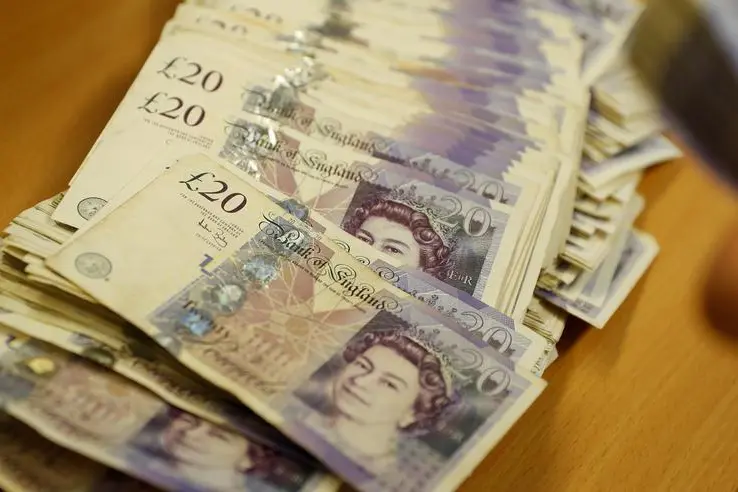PHOTO
LONDON - Sterling extended its fall against the U.S. dollar on Friday, dropping below $1.39, hurt by the U.S. Federal Reserve's hawkish surprise while data also showed an unexpected fall in Britain's retail sales.
The pound dropped against a strengthening dollar on Thursday after the Fed surprised markets by signalling it would raise interest rates and end emergency bond-buying sooner than expected.
On Friday, it fell further against both dollar and euro. At 0747 GMT it was down 0.4% on the day $1.3871, having touched as low as $1.38555 - its weakest since May 4. It was on track for its worst week since September 2020.
Versus the euro, it was down around 0.4% at 85.87 pence per euro, on track for a small weekly fall.
British retail sales fell 1.4% between April and May as a lifting of lockdown restrictions encouraged spending in restaurants rather than shops. The data did not have clear impact on the pound.
"GBPUSD remains bogged down below the 1.39 handle by a confluence of broad USD strength and a slight deterioration in near-term data," said Simon Harvey, senior FX market analyst at Monex Europe.
"The limited impact of the data on sterling is largely because retail sales volumes remain above pre-pandemic levels and a shift in consumption patterns towards services after the May 17th reopening was always likely."
For cable, market participants are weighing up the Bank of England and the Fed's relative pace of possible monetary policy tightening. The Bank of England next meets on June 24.
Stuart Cole, head macro economist at Equiti Capital, said that the retail sales data was the first significant piece of data to push back on the more upbeat tone that had been expressed by some BoE policymakers.
"The suggestion is that the market will be more cautious to take cable materially higher unless we see a resumption of strong UK data," Cole said.
Elsewhere, investors are watching a dispute between Britain and European Union over post-Brexit trade in the British province of Northern Ireland, which has a land border with EU member Ireland.
"Brussels' patience with London's having its cake and eating it is wearing thin. Indeed, there is a risk of protocols being triggered and tariffs being threatened more seriously," wrote ING strategists in a note to clients.
"The next few weeks could thus be a vulnerable period for Cable, where a break of 1.3890 opens up 1.3800/3810 - the last stop before an extension to the March/April lows of 1.3675."
(Reporting by Elizabeth Howcroft Editing by Robert Birsel) ((Elizabeth.Howcroft@thomsonreuters.com; +44 02075427104;))





















